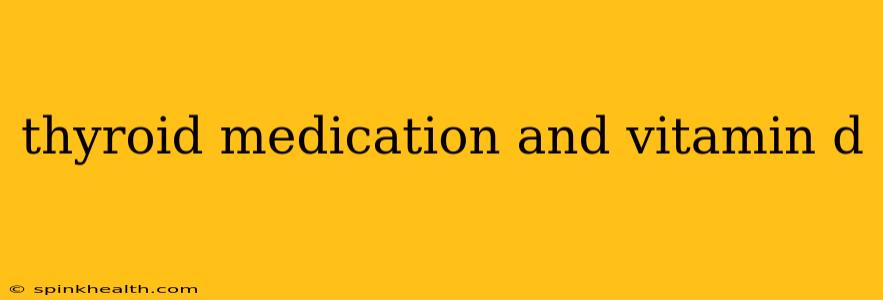For years, I battled fatigue, brain fog, and unexplained weight fluctuations. Doctors ran tests, and finally, the diagnosis landed: hypothyroidism. The relief of understanding was immense, but then came the medication – levothyroxine – and a whole new set of questions. One that lingered, surprisingly, was the relationship between my thyroid medication and vitamin D. It's a connection that's more significant than you might think. This journey of discovery led me down a path of understanding the intricate interplay between these two crucial elements of our health.
My endocrinologist explained that vitamin D plays a vital role in calcium absorption, bone health, and immune function – but also has links to thyroid hormone production and metabolism. This wasn't something that was immediately apparent, but the more I researched, the clearer the connection became. This article will explore this relationship, answering some of the frequently asked questions surrounding thyroid medication and vitamin D.
How Does Vitamin D Affect Thyroid Function?
Vitamin D, technically a hormone, interacts with our bodies in complex ways. Research suggests that sufficient vitamin D levels are essential for optimal thyroid function. A deficiency can potentially impair the conversion of T4 (the inactive form of thyroid hormone) to T3 (the active form). This means that even if you're taking levothyroxine, your body might not be able to efficiently utilize it without adequate vitamin D levels. This could lead to persistent symptoms despite medication. Think of vitamin D as a vital co-factor – it helps the thyroid hormone do its job effectively.
Can Vitamin D Interfere with Thyroid Medication?
This is a question that often sparks concern. The short answer is: generally not. While there's no direct interaction that renders your thyroid medication ineffective, a severe vitamin D deficiency could indirectly impact the effectiveness of your medication as described above. Conversely, supplementing with vitamin D while on thyroid medication doesn't typically affect its absorption or efficacy. Always discuss any vitamin D supplementation plans with your doctor, especially when you're on thyroid medication. They can monitor your levels and ensure you’re getting the right dosage.
What are the Symptoms of Vitamin D Deficiency in Hypothyroidism Patients?
The symptoms of vitamin D deficiency can often mimic those of hypothyroidism, making diagnosis challenging. These might include:
- Increased fatigue: This is a common symptom of both conditions, making it difficult to differentiate the source.
- Muscle weakness and pain: Vitamin D is crucial for muscle health, so a deficiency can exacerbate muscle problems.
- Bone pain: This is a more specific indicator of vitamin D deficiency, especially in more advanced cases.
- Mood changes and depression: Low vitamin D has been linked to depression, a symptom also seen in hypothyroidism.
If you’re experiencing these symptoms, it's crucial to discuss them with your healthcare provider to determine the underlying cause.
Should I Take Vitamin D Supplements if I'm on Thyroid Medication?
This is a crucial point – a blanket "yes" or "no" wouldn't be responsible or accurate. It depends entirely on your individual vitamin D levels. Your doctor will usually order a blood test (25-hydroxyvitamin D) to assess your vitamin D status. Based on the results, they’ll recommend the appropriate course of action, whether it's supplementation, dietary changes, or increased sun exposure. Don’t self-medicate; always follow your doctor's advice.
How Can I Get Enough Vitamin D?
There are multiple ways to maintain healthy vitamin D levels. These include:
- Sunlight exposure: Spending 10-15 minutes in the sun (depending on your skin type and location) several times a week can be beneficial. Always use sunscreen to prevent sunburn.
- Dietary intake: Fatty fish (salmon, tuna), egg yolks, and fortified foods are good sources of vitamin D.
- Supplementation: Your doctor may recommend vitamin D supplements, particularly if you have a deficiency.
Conclusion: A Holistic Approach to Thyroid Health
Managing hypothyroidism involves a multifaceted approach. It’s not just about taking medication; it’s about understanding the intricate interplay between various factors affecting your health. Vitamin D is one such significant piece of the puzzle. By working closely with your doctor and maintaining healthy vitamin D levels, you can improve your overall well-being and experience the full benefits of your thyroid medication. Remember, open communication with your healthcare provider is key to achieving optimal thyroid health. My personal experience taught me the importance of proactive engagement in my own healthcare. Taking charge and asking questions is vital in managing this condition and feeling your best.

